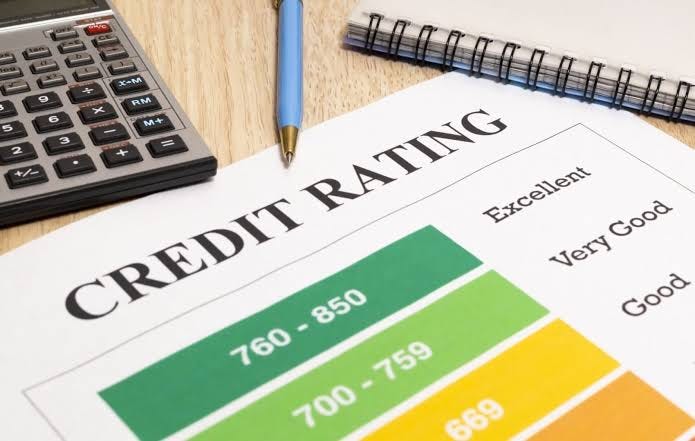The Urgent Need for African Credit Ratings
Who rates us determines how the world views us, and how we view ourselves. It’s time Africa told its own financial story.
"Who rates us determines how the world views us, and how we view ourselves. It’s time Africa told its own financial story."
The global financial ecosystem thrives on trust, and credit ratings are its linchpin. These ratings, assigned by agencies like Moody’s, S&P, and Fitch, shape perceptions of countries’ creditworthiness, determining the cost of borrowing and influencing investor confidence. But here’s the rub: these powerful agencies predominantly operate from the Global North, using frameworks that often fail to capture Africa’s unique economic realities.
For too long, Africa has been subject to a narrative shaped by outsiders—an economic storytelling that leans heavily on risk while glossing over resilience. The urgent need for a pan-African credit ratings agency isn’t just about fairer assessments; it’s about reclaiming the narrative of Africa’s economic potential and presenting a balanced, contextual view of its growth trajectory.
The Problem with Existing Credit Ratings
Global credit rating agencies often assess African economies through a lens clouded by systemic bias and a lack of local context. This has led to:
Overstated Risk: Many African nations are unfairly categorized as high-risk, leading to exorbitant borrowing costs. For example, a country like Ghana might face higher interest rates than a similarly positioned economy in Asia or Latin America, despite having comparable or better economic fundamentals.
Underappreciated Resilience: Africa's informal sector—estimated to contribute up to 85% of employment in some countries—is a testament to the continent’s adaptability. Yet, its contributions are frequently undervalued in global credit assessments.
Narrative Control: Ratings often hinge on external factors like political instability or global commodity prices while ignoring homegrown efforts in innovation, policy reforms, and regional integration.
Investor Perception: These skewed ratings deter foreign direct investment and limit access to global financial markets, deepening economic disparities.
Why Africa Needs Its Own Credit Ratings Agency
Contextual Understanding
An African credit ratings agency would factor in the continent’s unique economic dynamics, such as the role of informal markets, intra-regional trade, and the impact of historical economic injustices. For instance, while political risk is real, it shouldn't overshadow the significant strides in infrastructure, digital transformation, and renewable energy across the continent.Fairer Assessments
With localized knowledge, an African agency can provide nuanced and balanced evaluations. This would ensure countries with strong fiscal discipline and growth potential aren’t penalized for factors beyond their control, such as global interest rate hikes or trade wars.Empowering Sovereignty
Self-representation in credit assessments is a step toward economic sovereignty. It sends a powerful message that Africa can create solutions tailored to its realities without external validation.Stimulating Regional Integration
An African credit ratings agency would bolster initiatives like the African Continental Free Trade Area (AfCFTA), fostering trust and collaboration within the region. It would also facilitate cross-border investments and intra-African trade by reducing perceived risks.
Precedents and Possibilities
Africa doesn’t need to start from scratch. Emerging markets like India and China have established credit rating agencies to cater to their regional markets. The same can be done here. The African Union (AU), African Development Bank (AfDB), and regional blocs like ECOWAS could spearhead this initiative.
Collaboration with private sector players and academic institutions could also ensure credibility, technical expertise, and independence. Moreover, leveraging advancements in technology—like AI and blockchain—could enhance transparency and accuracy in credit assessments.
The Creative Economy as a Case Study
Africa’s creative economy—valued at over $4.2 billion—is a prime example of the disconnect between global perceptions and local realities. Despite its growing global influence, from Nollywood to Afrobeats, this sector is often overlooked in traditional credit assessments. An African credit ratings agency could recognize and elevate these contributions, showcasing the continent’s resilience, innovation, and soft power.
The Road Ahead
Creating an African credit ratings agency will not be without challenges. Questions about credibility, funding, and initial acceptance by global investors need to be addressed. However, these challenges are far outweighed by the potential benefits of a system rooted in fairness and self-determination.
This is a call to action for policymakers, financial institutions, and thought leaders across the continent. Africa’s story is one of innovation, growth, and resilience. It’s time we had a credit rating system that reflects that truth—a system that fosters trust from within and tells our story to the world, on our terms.
Conclusion
The creation of an African credit ratings agency is not just a financial necessity; it’s a cultural imperative. It’s about reclaiming the narrative, fostering regional integration, and ensuring that Africa’s immense potential is seen and valued. Because, ultimately, who rates us shapes how we rise.



